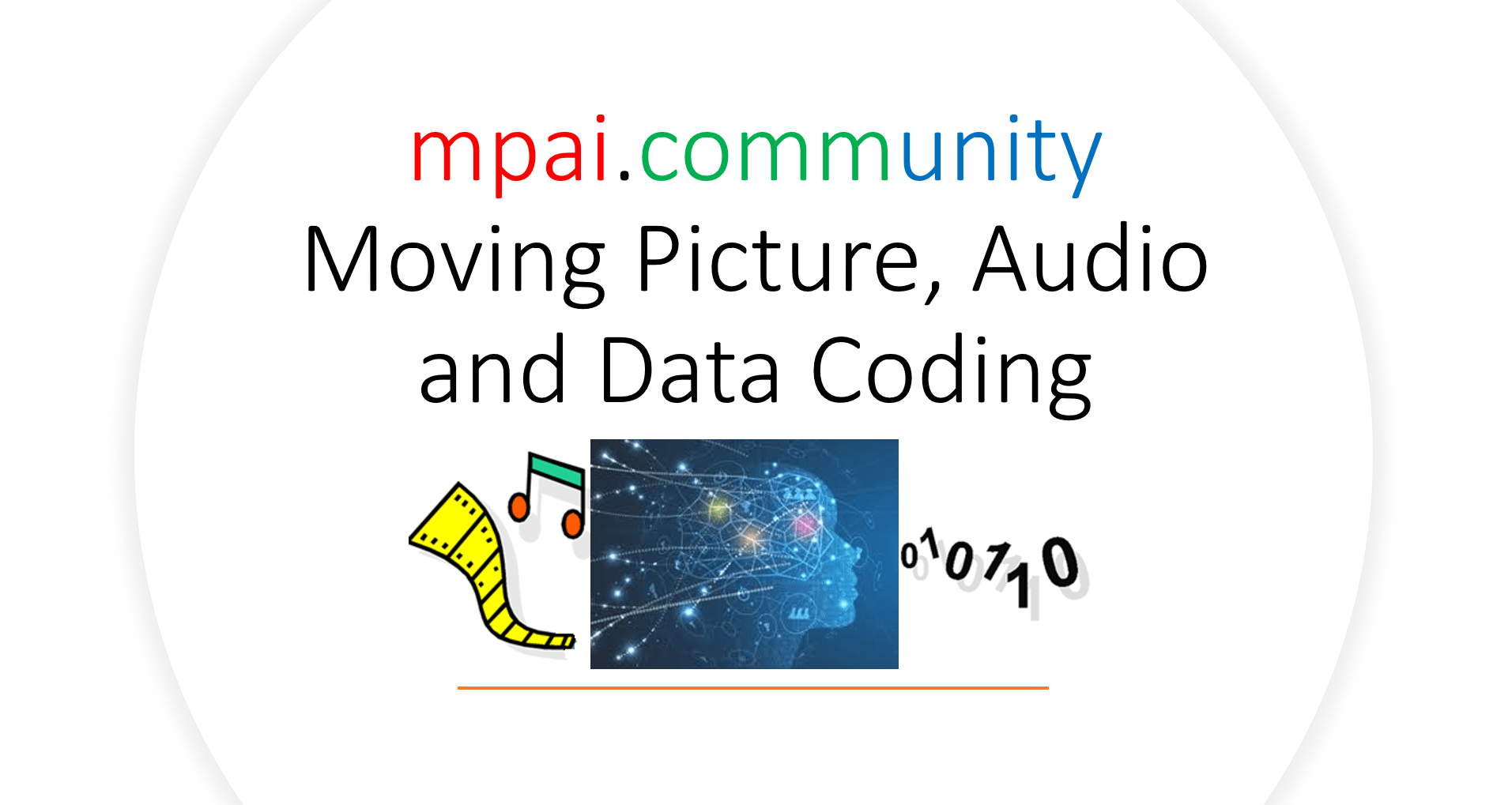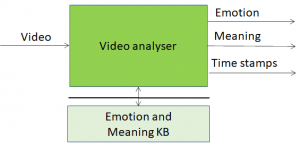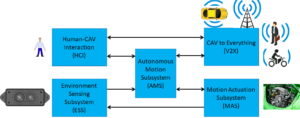Problem statement: Making standards, especially communication standard, is one of the noblest activities that humans can perform for other humans. The MPEG group used to do that for media and other data. However, ISO, the body that hosted MPEG, suffers from several deficiencies, two of which are: fuzzy governance and ineffective handling of Intellectual Property Rights (IPR), the engine that ensures technical innovation-based progress. The prospects of reforming ISO are low: installing good governance requires capable leadership and solving the IPR problem is an unrewarding endeavour. Actually, the only beneficiary of such endeavours is by and large only MPEG, whose standards collect ~57.5% of all patent declarations received by ISO.
Moving Picture, Audio and Data Coding by Artificial Intelligence – MPAI is a not-for-profit organisation that addresses the two deficiencies – governance and IPR handling – by building on and innovating MPEG’s experience and achievements and by targeting the involvement of a large community of industry, research and academic experts. MPAI’s governance is clear and robust, and its specifications are developed using a process that is technically sound and designed to facilitate practical use of IPR in MPAI specifications.
Mission: to promote the efficient use of Data by
- Developing Technical Specifications (TS) of
- Data coding, especially using new technologies such as Artificial Intelligence, and
- Technologies that facilitate integration of Data Compression components in Information and Communication Technology systems, and
- Bridging the gap between TSs and their practical use through the development of IPR Guidelines, such as Framework Licences and other instruments.
Data include, but are not restricted to, media, health, manufacturing, automotive and generic data.
Governance: The General Assembly (GA) elects the Board of Directors, establishes Development Committees (DC) tasked to develop specifications and approves their TSs. Each Member appoints an adequate number of representatives in DCs. Principal Members appoint one representative in the IPR Support Advisory Committee (IPR SAC), tasked to develop Framework Licenses (FWL).
Process: before a new project starts (i.e. before a Call for Technologies is issued)
- The IPR SAC develops a FW) that lists the elements of the future licence of the TS without any indication of cost. Examples of such possible elements could be: “royalty free profile” with a given performance level, possible “initial grace period” depending on market development, possible “content fees”, possible one or more annual “caps”, a possible given ratio of user devices generating human perceivable signals vs other user devices etc.
- The FWL does not contain actual values such royalty levels, dates, percentage values etc.
- The FWL is approved by a qualified majority of Principal Members participating in the project.
- Each Member participating in the project declares to be willing to make available a licence for its IP according to the FWL by a certain date, and to take a licence by a certain date if it will use the part of the TS that is covered by IP
- Each Member shall inform the Secretariat of the result of its best effort to identify IP that it believes is infringed by a TS that is being or has already been developed by a DC.
Method of work: the GA develops, maintains and constantly updates a work plan on the basis of Members’ inputs and responses to Calls for Interest. The GA assigns the development of a TS to a DC. The DC typically issues Calls for Evidence and/or Calls for Technology. Anybody may answer Calls for Interest, Evidence or Technology. A non-Member whose contribution submitted in response to a Call for Technology is accepted, is requested to join MPAI. DCs develop TSs by consensus. If consensus is not reached on an issue, the chair may decide to bring the matter to the attention of the GA who decides by qualified majority vote. The DC shall document which (parts of) a contribution is adopted in the TS. See here for a detailed work flow.
Membership: companies and organisations, including universities, may become Principal or Associated Members at their choice. Applicants can become and then remain Members by paying yearly membership fees. Only Principal Members are allowed to vote. Associated Members may join DCs and contribute to the development of TSs.
Key documents: The text above is a summary description of MPAI. The Statutes, that include detailed Procedures of work should be consulted for precise information. See a summary here. The Statutes are being reviewed and will be made public shortly.
A novel approach: MPAI offers a novel approach to standardisation with the following features:
- MPAI intends to be a broad multidisciplinary and multi-stakeholder community.
- Low access threshold to participate in the development of Technical Specifications: most meetings are held by teleconference supported by advanced ICT-based collaboration facilities.
- Facilitated participation of experts who have stayed away from formal standardisation because of cost and other concerns.
- Framework Licences, developed through a rigorous process, expedite the use of Technical Specifications covered by IP.
- Timely delivery of application-driven and technology-intensive specifications.
- Bottom-up governance in specification development.
- No external constraints on members when they decide about activities.
The MPAI web site is at http://www.mpai.community/. As the TLD suggests, MPAI is a community. Therefore, comments from the community, in particular on Statutes and Operation, are welcome. Please send your comments to Leonardo, while the MPAI Secretariat is being established.
Posts in this thread
- MPAI – do we need it?
- New standards making for a new age
- The MPEG to Industry Hall of fame
- This is ISO – An incompetent organisation
- This is ISO – An obtuse organisation
- What to do with a jammed machine?
- Stop here if you want to know about MPEG (†)
- This is ISO – A hypocritical organisation
- The MPEG Hall of fame
- Top-down or bottom-up?
- This is ISO – A chaotic organisation
- A future without MPEG
- This is ISO – A feudal organisation



